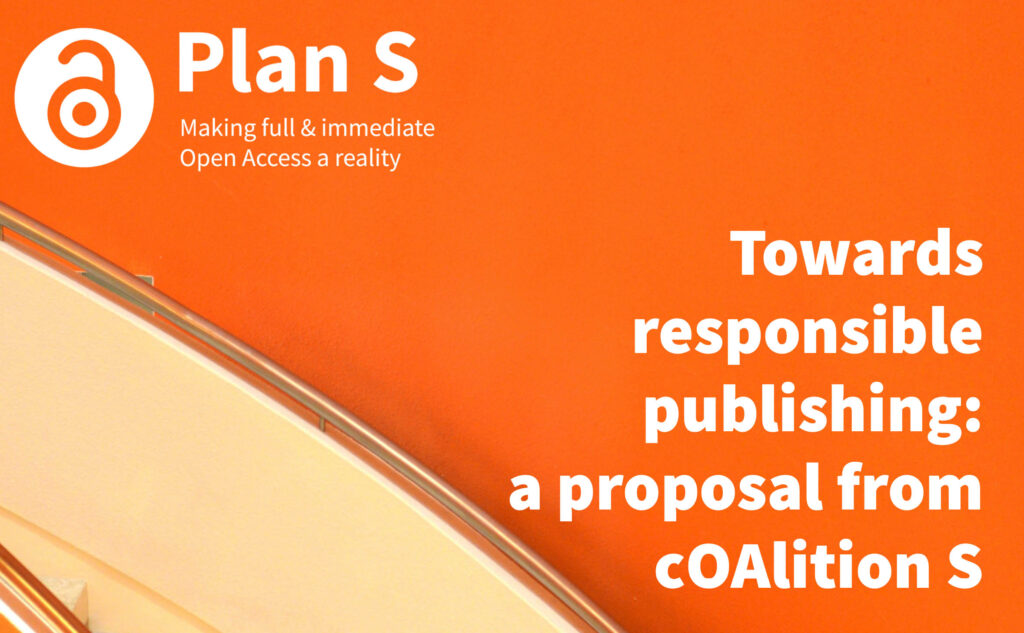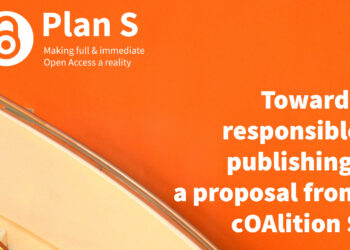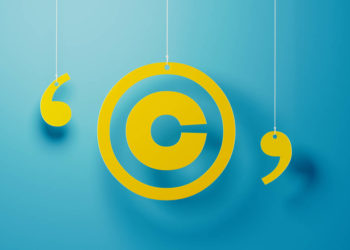Editor’s Note: In today’s post, three global society publishers, Institute of Physics (IOP) Publishing, American Institute of Physics (AIP) Publishing, and the American Physical Society (APS) have come together to offer a response to cOAlition S’s recent “Towards responsible publishing, a proposal from cOAlition S”. IOP Publishing is a wholly owned subsidiary of the Institute of Physics, a not-for-profit society, and supports the Institute’s work to inspire people to develop their knowledge, understanding and enjoyment of physics. AIP Publishing is a wholly owned not-for-profit subsidiary of the American Institute of Physics and supports the organization’s charitable, scientific, and educational purposes through scholarly publishing activities in the fields of the physical and related sciences. APS is a nonprofit membership organization working to advance and diffuse the knowledge of physics through its outstanding research journals, scientific meetings, and education, outreach, advocacy and international activities.
cOAlition S, a group of national research funding organizations supported by the European Commission, has recently revealed a new plan for an ‘open, scholar-led communication ecosystem’ named “Towards Responsible Publishing.” The plan proposes a move away from current publishing models whereby researchers rather than publishers are responsible for determining how, when and where research is disseminated. According to cOAlitionS, scholarly communication needs to change as it is inequitable and slow, does not realize the full potential of peer review and harbors career incentives which are damaging science.
Society publishers AIP Publishing, IOP Publishing and the American Physical Society support cOAlition S’s attempt to garner broad, early feedback on the proposal and support the general proposition that scientific publishing must strive to improve and remain open to positive change. We also share the vision of achieving a more open publishing system, where researchers’ needs are the central driver for innovation and where researchers are recognized and rewarded for a wider range of their work. However, the proposal misrepresents the academic publishing system, and fails to recognize the valuable role that society publishers can and should play in any future evolution of the system.
The new iteration of Plan S contends that the current publishing system causes unnecessary delays in sharing research outputs. However, preprint platforms such as arXiv have been enabling free, informal dissemination of research since 1991. And evolving models for publishing peer-reviewed journals are now enabling a rapidly increasing proportion of finalized research articles to transition sustainably to open access.
It is true that peer review and other editorial checks for aspects such as scientific relevance, manuscript completeness, clarity of language, and signs of plagiarism take time. But there are good reasons to have quality control mechanisms in place and these should not be dismissed as ‘needless delays,’ as is posited in the proposal. Publishers are receiving an ever-growing number of fraudulent research papers – such as those generated by paper mills or with undeclared AI-generated content. If these bogus papers enter the literature, credibility, trust, and confidence in science will be eroded. Detecting, investigating, and acting on infringements of research integrity is an important example of the pre-acceptance work publishers do that takes significant time and resources. Publishers, funders, institutions, and policymakers should be talking about how to combat these shared problems, not ignoring them or, worse, watering down current safeguards.
cOAlition S’s proposal also asserts that the current publishing system fails to realize the potential of peer review. Many publishers, especially society publishers, have continually refined and enhanced peer-review practices to ensure rigorous, timely, and transparent scrutiny of research. Examples of such innovations include reviewer feedback, transparent and collaborative peer review reports, and double anonymous peer review. Such efforts demonstrate an ongoing commitment to optimizing the peer-review process in a way that builds constructively on existing foundations.
Society publishers exist to serve the needs of their community and can be engines for change. IOP Publishing, the American Physical Society, and AIP Publishing are all led by and for the physical science community. Being embedded in this way enables us to reflect and influence the global body of scientists in our field. Society publishers play a key role in providing researchers with the latest innovations and publishing best practices tailored to the needs of the research communities they serve. Funders and other vital stakeholders should engage with society publishers and avoid building new systems from scratch with all the duplicative cost, effort, and risk that might entail.
The scale and urgency of the challenges faced by the scholarly communications community, such as threats to research integrity and trust in science, AI, and diversity and inclusion, require us all to work more collaboratively and make important improvements where we can. We support the call for a conversation about the future of scholarly communication. Yet, if we want to make real, sustained progress, it is crucial to take a balanced view of the current system and explore fully where publishers — in particular the society publishers which represent specialist communities — can evolve existing, successful processes and systems before considering the replacement of the entire system.
Discussion
3 Thoughts on "Guest Post — Society Publishers Respond to Plan S “Towards Responsible Publishing” Proposal"
I am writing as a researcher with, unlike most researchers, close connections with academic publishers and libraries to say how pleased I am to see how impressively these three distinguished publishers have corrected Coalition S in some of their assertions. It is good to see arguments for collaboration on behalf of the research communities they work so closely with.
cOalition S has not, to my knowledge, put forth a business model that would address the need for any publisher (for-profit and non-profit) to be able to conduct the very important tasks of curating, publishing, and managing the entire critical path of publishing on a financially sound basis.
We often hear the cries of some who say the publisher’s margins are too high. I don’t hear the cheers about how scholarly publishers are reinvesting the profits from these margins into new products and services that benefit everyone in our publishing ecosystem.
I wonder why the skeptics have yet to invite an economist to the discussion about costs, productivity, and margins. An economist would reveal to them the realities of running a business, whether it is for profit or not.
One important point that the industry, to my knowledge, has not discussed is what would happen if the NIH’s budget was cut from the 2023 budget of $46.1 Billion dollars. The scholarly publishing industry would come to a halt. This is an area where the scholarly publishing industry should put significant effort to maintain. Our associations should have an executive task force that is vigilant to ensure this funding stays in place.
The scholarly publishing community should debate pricing policies and look for new ways to make publishing more affordable but not at the risk of creating an unnecessary debate that ultimately needs to go where.
I truly hope we can come up with a better way to work on the future of open than to just react, yet again, to the latest iteration of Plan S. Plan S was not an inclusive, well-reasoned plan for the future of scholarly publishing back in 2018, and neither is the do-over Plan S today.
For starters, we can look around at what’s happening in the world of open and follow the evidence of what’s working (and what isn’t), and listen to researchers about what’s needed (and what isn’t). We can also work together on developing real, workable, sustainable open policies that listen to and respect everyone. The research publishing world (and the research world) would be much better served by developing these real policies than by continuing to react to Plan S. It’s just one idea among many, and it doesn’t represent the best we can do.




